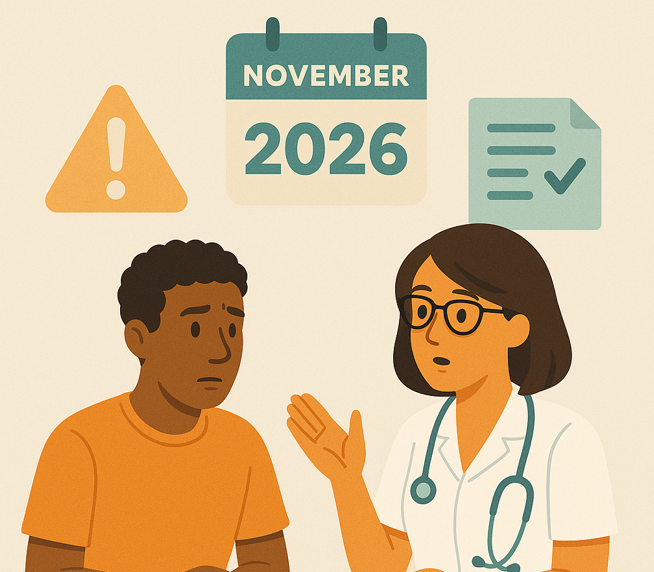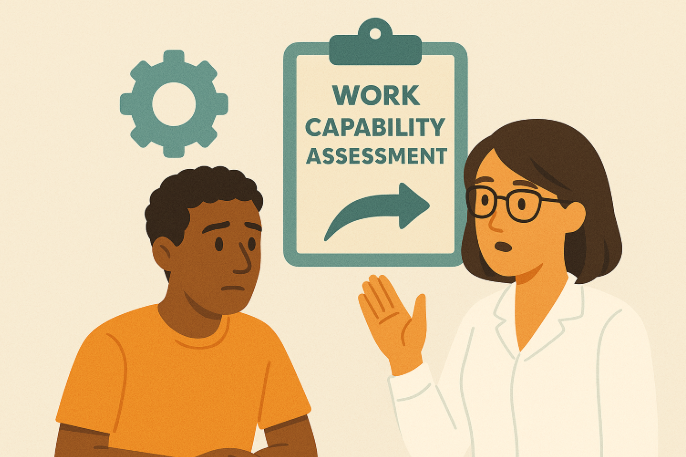What does “PIP payment reforms UK 2026” mean for you? This guide offers a comprehensive analysis of the upcoming changes to Personal Independence Payment, Universal Credit, and the Work Capability Assessment, focusing on claimant criteria, financial impact, legal rights, and practical steps to protect your entitlement.
Why are the PIP payment reforms UK 2026 happening?
-
The government aims to save around £5 billion by 2029–30, responding to escalating PIP and UC‑health spending: £26 billion and £17 billion respectively in 2024–25.
-
The Pathways to Work Green Paper highlights concerns of “health‑related benefit spending rising fast” and pledges sustainability and increased work incentives.
-
MPs, charities, and campaigners warn of serious hardship risks, especially for those with mental health conditions, fluctuating needs, and carers.
What specific changes will take effect in November 2026?

How will the daily living component criteria change?
Starting from November 2026, the daily living component of Personal Independence Payment (PIP) will undergo significant changes. Under the revised assessment rules:
-
Claimants must score at least 4 points in one single activity (such as preparing food, managing personal hygiene, dressing, or communicating)
-
They must also achieve a minimum of 8 points in total across all daily living activities to qualify for the standard rate
This represents a notable tightening compared to the current system, where claimants can qualify through multiple low-scoring areas without hitting 4 points in a single activity.
Impact on Claimants
According to estimates from the Department for Work and Pensions (DWP);
- The daily life component may no longer be available to up to 1.2 million individuals.
- By the fiscal year 2029–2030, affected people may lose an average of £4,200 to £6,300 annually.
This change is designed to narrow eligibility, focusing support only on those with the most significant and focused daily living challenges.
Will the mobility component change?
No changes have been proposed to the mobility component of PIP:
-
The current criteria for mobility-related support—such as difficulties with moving around or planning and following journeys—will remain unchanged
-
Claimants who qualify based on mobility impairments will not see any modifications to assessment thresholds
This decision preserves support for individuals with physical or cognitive barriers to movement, travel, and community access.
Who is affected and when?
The new rules will apply as follows:
-
All new PIP claims submitted from November 2026 onwards will be assessed under the updated criteria
-
Existing claimants will be affected only when their claim is reviewed or reassessed after that date
Importantly:
-
-
Claimants who are over the State Pension age at the time of reassessment are exempt from the new rules.
-
This means older claimants will continue to receive PIP under the current eligibility structure, unless they make a new claim or undergo a change of circumstances that triggers reassessment.
-
What are the details of Universal Credit changes?

The UK government has announced a series of reforms to Universal Credit (UC), particularly affecting the health-related components and assessment procedures. These changes, set to be phased in between 2026 and 2029, represent one of the most significant overhauls of the welfare system in recent years.
How will the UC health element change?
Beginning in April 2026, there will be a significant reduction in the health-related component of UC for new claimants:
-
New claimants will receive £50 per week, instead of the current £97 per week, under the Limited Capability for Work and Work-Related Activity (LCWRA) group.
-
This £50 rate will be frozen until at least 2029–30, with no planned increases in line with inflation.
Existing claimants already receiving the LCWRA element will:
-
Continue receiving £97 per week
-
However, they will not receive annual inflationary increases on this amount until after the 2029–30 financial year
This policy effectively freezes the benefit for existing recipients and reduces financial support for new claimants with health-related barriers to work.
What about standard UC increases?
Yes, alongside the health element changes, the standard Universal Credit allowance is set to rise modestly:
-
The average weekly increase in basic UC payments will be around £7 starting in the 2026–2027 tax year.
-
This results in a real-terms increase of around £165 per year, aiming to cushion the impact of frozen or reduced health components
Is PIP-linked eligibility changing?
Yes. From 2028 onwards, eligibility for enhanced health-related UC payments will be linked directly to receipt of the Personal Independence Payment (PIP) daily living component.
Key changes include:
-
There will be no more Work Capability Assessments (WCAs).
-
PIP assessments will be used instead to determine who qualifies for additional support under Universal Credit
-
Only those awarded the daily living component of PIP will be eligible for the higher UC health-related payment
This change simplifies the assessment process but also raises the threshold for qualifying, as PIP assessments are often more stringent than WCAs.
What is changing with the Work Capability Assessment?

-
The Work Capability Assessment will end by 2028/29 .
-
A single PIP-style assessment will cover all future decisions on PIP, ESA, and increased UC health eligibility.
-
People with lifelong, severe, non-improvable conditions will be placed on permanent awards with no reassessment; extra premiums are being explored.
-
A new “right to try” work trial will let claimants attempt employment without losing benefits or undergoing immediate reassessment.
What is the financial impact on claimants and households?
| Category | Pre‑Reform (€) | Post‑Reform | Annual Impact |
|---|---|---|---|
| PIP daily living | £3,766–£6,428 | Could drop to £0 | Up to £6.3 k |
| UC health (new claimants) | £97/week | £50/week | –£47 × 52 = £2.4 k |
| UC health (existing claimants) | £97/week (inflation-locked) | £97/week (frozen) | Inflated real loss |
| UC standard allowance | £91/week | £98+/week | +£7+/week (c. £365/year) |
-
800,000–1.2 million PIP claimants may lose daily living support; up to 3 million UC households could lose health payments.
-
Total annual household losses: £4,000–£9,600, especially for those rapidly losing both PIP and UC.
How Much Support Does PIP Currently Offer?
As of 2025, Personal Independence Payment (PIP) offers financial help to individuals with long-term health conditions or disabilities through two components:
| Component | Standard Rate | Enhanced Rate |
|---|---|---|
| Daily Living | £72.65/week | £108.55/week |
| Mobility | £28.70/week | £75.75/week |
-
Maximum support: £184.30/week (over £9,580/year)
-
Payments are non-means tested and tax-free
-
Depending on your needs, you may receive one or both components.
Many claimants rely on the daily living component to qualify for other support, including Carer’s Allowance, Council Tax reductions, and UC disability elements.
Who is most likely to be impacted?
-
Physical conditions like back pain, arthritis, chronic pain—risk disqualification under stricter scoring.
-
Mental health issues, neurodiversity, fluctuating conditions—may struggle to meet consistent 4‑point thresholds.
-
Women, older people, and those with invisible disabilities are most vulnerable.
-
Children, carers, self-employed claimants: removal of PIP daily living can automatically trigger Carer’s Allowance loss; UC health loss also follows.
What transitional protections and supports are planned?
-
A three-month grace period, followed by a 13-week transitional protection, will limit fast disruption for those losing PIP after November 2026.
-
Terminally ill and those with non-improvable severe conditions receive permanent protection; premium system being explored .
-
£500 million allocated to transitional support, and £1 billion for employment and back-to-work services over this Parliament.
What are the legal, parliamentary & devolution dynamics?
-
Green Paper runs until June 30, 2025; primary legislation expected this summer. Parliamentary votes are scheduled before July 22 recess.
-
Labour MPs threaten significant rebellion—170 may oppose unless additional safeguards introduced.
-
Welsh campaigners warn disproportionate impact, with around 190,000 people in Wales at risk, prompting calls for a devolved impact analysis.
-
Legal scrutiny is likely: previous Green Paper changes faced Judicial Reviews for insufficient consultation.
How will assessments & appeals be affected?
-
More face-to-face assessments, with audio/video recordings to improve transparency .
-
Appeals remain unchanged: Mandatory Reconsideration, then First‑tier Tribunal, with historically 75% tribunal success.
-
Charities like Scope, Epilepsy Action, Citizens Advice recommend enhanced preparation, keeping logs and condition diaries to build a strong case .
What practical steps can claimants take now?

-
Apply or renew before November 2026 to lock in current eligibility. Over-65s unaffected by criteria change .
-
Keep detailed diary evidence: pain, concentration, fatigue, daily living help hours .
-
Gather medical letters, occupational therapist reports, care logs.
-
Engage early with advice services: Citizens Advice, Scope, Disability Rights UK, CAP UK .
-
Prepare for tribunal appeals: consider representation from law centres or charity advocates.
-
Explore alternative financial support: hardship payments, discretionary UC funds, ESA, local grants, and foodbanks.
Key timelines to remember
-
The Green Paper consultation ends on June 30, 2025.
-
Summer 2025 – Anticipated White Paper and Parliamentary vote on implementation bill.
-
April 2026 – UC health element reforms begin.
-
November 2026 – New PIP daily living criteria apply.
-
By 2028/29 – WCA ends; unified PIP-based assessment implemented.
Conclusion
The PIP Payment Reforms UK 2026 represent one of the most significant overhauls to disability welfare in a decade. From November 2026, claimants must score at least 4 points in a single daily living activity and 8 points overall—a shift that risks cutting vital support for over 800,000 people, especially those with invisible disabilities, fluctuating conditions, or mental health challenges.
On top of this, Universal Credit will see its health element halved for new claimants from April 2026, and the Work Capability Assessment (WCA) will be phased out entirely by 2028, replaced with a single PIP-style assessment.
While the government has promised transitional protections, grace periods, and exemptions for those with terminal or lifelong conditions, the majority of claimants must take action now to protect their entitlement, prepare for appeals, and seek expert guidance.
If left unaltered, these policies will transform the welfare environment for handicapped persons in the UK. Understanding the changes, timing your applications, and engaging with charities and legal support services will be critical to navigating this complex new environment.
Stay informed, stay supported, and make your voice heard during the June 2025 consultation to influence these life-changing policies.
FAQs on PIP Payment Reforms UK 2026
1. Will current PIP claimants lose their payments immediately in 2026?
No. If you’re already receiving PIP before November 2026, the new rules only apply when your claim is reviewed or renewed. Some groups (e.g., over-65s, terminally ill) are exempt.
2. How can I keep my PIP if I’m worried I won’t qualify under new rules?
-
Apply or renew before November 2026
-
Ensure strong medical evidence
-
Track symptoms with a daily diary
-
Get support from charities like Scope or Citizens Advice
3. Will I lose Carer’s Allowance if the person I care for loses PIP?
Indeed. Carer’s Allowance is contingent upon the recipient of PIP’s daily living component. If that stops, so could your entitlement.
4. Can I appeal if I’m turned down under the new system?
Yes. The appeal process remains the same:
-
Mandatory Reconsideration
-
Tribunal hearing (you may win with strong evidence)
5. Will the WCA still apply in 2026?
Yes, but only until it is abolished in 2028. From then, PIP scores will determine UC health support eligibility.
6. What is the “Right to Try” initiative?
It lets you test employment without losing benefits or triggering reassessments. Designed to encourage safe, supported work re-entry.
I’m Laura Wilson, a passionate blogger and content creator with a deep interest in business, finance, and entrepreneurship. I’ve had the opportunity to write for several premium blogs, sharing insights & practical advice for individuals & small businesses. I’m the founder and publisher of ukbusinessmag.co.uk, where I focus on creating valuable, easy-to-understand content to help UK startups & SMEs grow.



